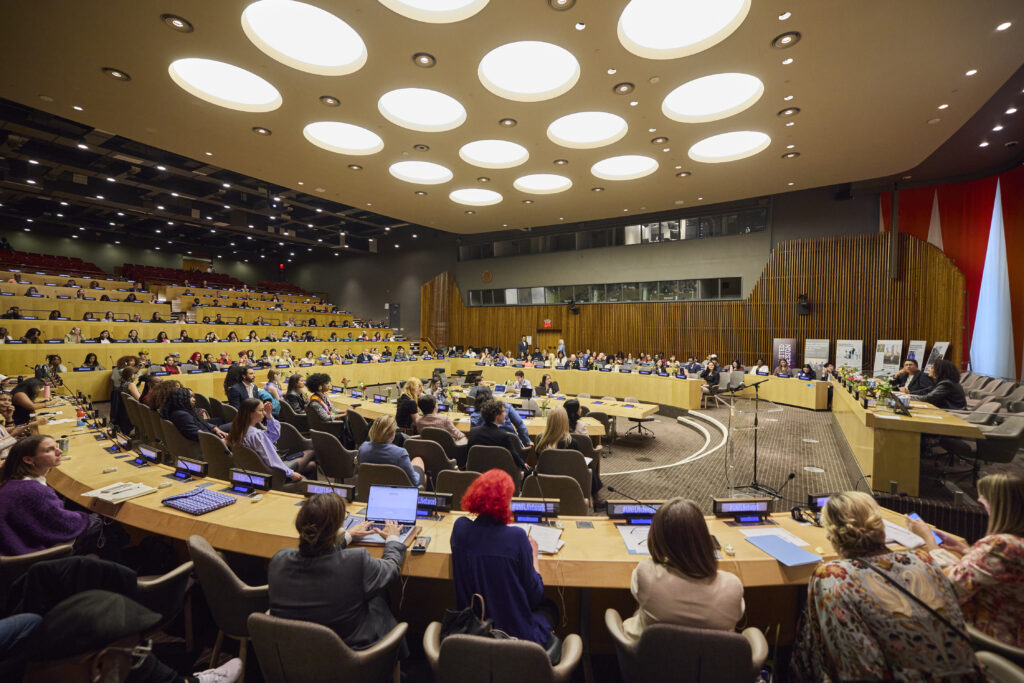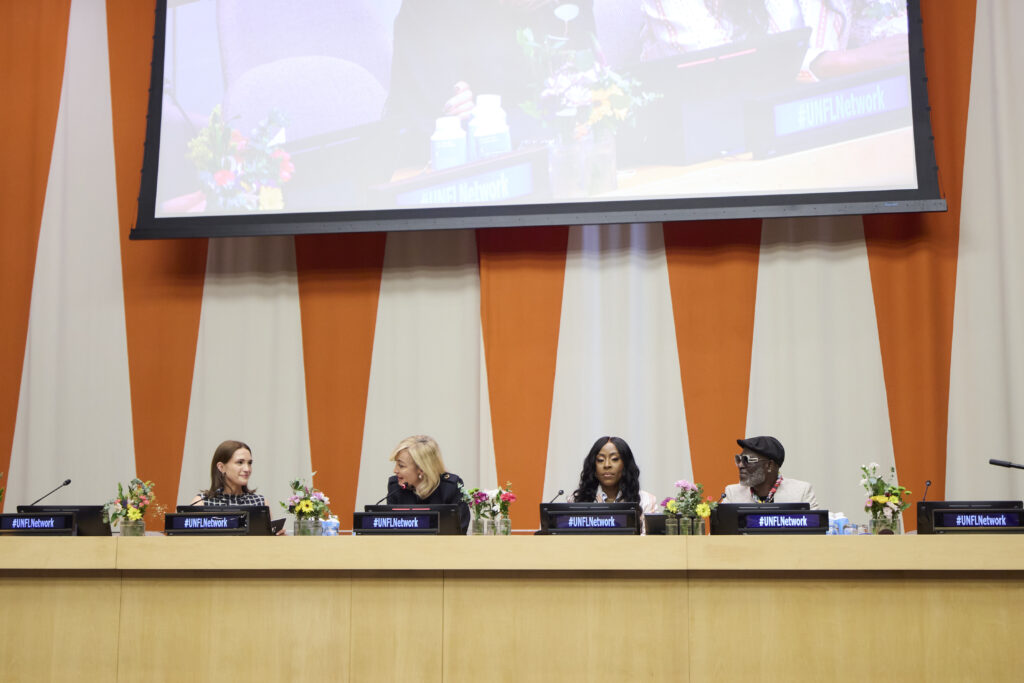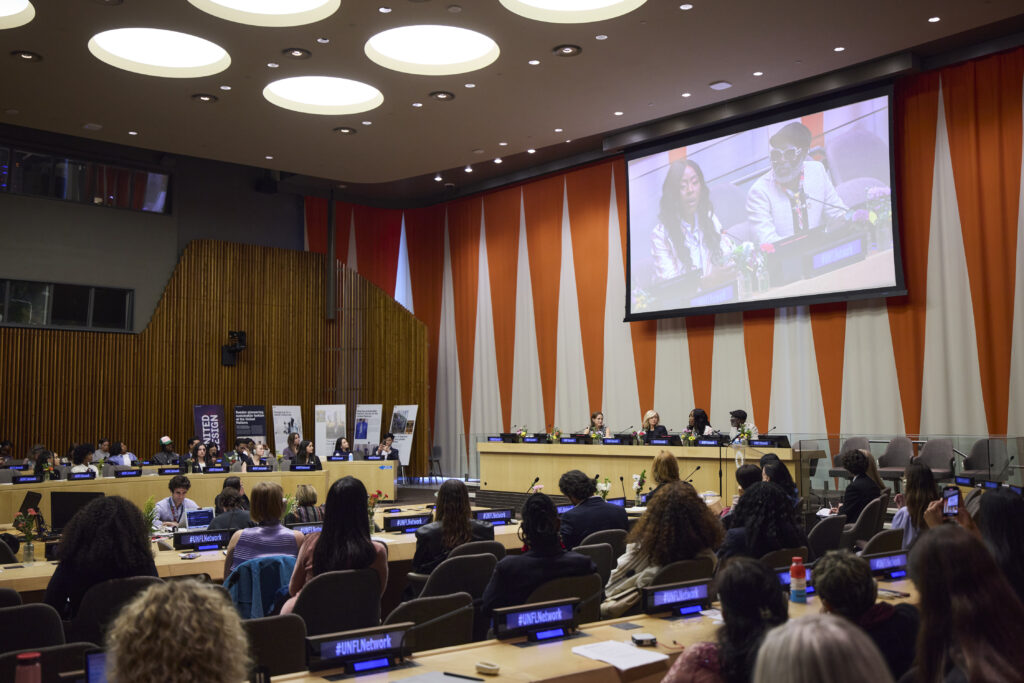
This week, the UN Fashion & Lifestyle Network convened its annual meeting at United Nations Headquarters in New York. Hosted by the United Nations Office for Partnerships and the Fashion Impact Fund —a program of PVBLIC Foundation in collaboration with the UN Sustainable Fashion Alliance and supported by Lenzing, this edition of the UN Fashion & Lifestyle Network Annual Meeting emphasized urgent collective action to ensure fashion and lifestyle sectors significantly contribute to achieving the Sustainable Development Goals (SDGs).
Featuring 15 discussions with global leaders, industry experts, innovators, and policymakers, the meeting addressed key industry topics including responsible sourcing, circular business models, digital innovation, the expanding second-hand market, and leveraging culture and technology for sustainable change.

Guzangs was invited to join a panel titled The Power of Platforms: Driving Collective Action for a Sustainable Fashion Future, moderated by Vogue Business Executive America Editor Hilary Milnes. Panelists included Federica Marchionni of Global Fashion Agenda, Rick Davy of Fashion Week Brooklyn, and Guzangs founder Idelle Taye.
The conversation moved beyond surface-level discussions of sustainability to consider deeper, often overlooked questions: Whose voices shape the global sustainability agenda? What forms of knowledge are prioritized? How can culture be recognized not just as a creative output, but as a strategy for environmental and social resilience?
From the perspective of a platform rooted in African fashion, Guzangs emphasized that sustainability is not a new concept on the continent. It is embedded in ancestral practices, in the ways designers reuse, reinterpret, and reimagine cultural heritage. As Idelle noted during the panel, “For many African creatives, sustainability isn’t a pivot. It’s a practice. One grounded in memory, tradition, and adaptation.”

Reflecting on the experience, Idelle shared:
“Being at the UN wasn’t about the setting—it was about the shift. The conversations we’ve been having at Guzangs around sustainability, representation, and cultural value belonged in that room. What struck me most was seeing African perspectives not just acknowledged, but integrated. That’s the work.”
The UN Fashion & Lifestyle Network reflects an evolving understanding of sustainability —one that includes cultural preservation, social equity, and storytelling as essential components of systemic change. Platforms like Guzangs contribute to this shift by documenting and amplifying the voices of designers whose work often exists outside dominant industry narratives, yet offers critical insights into how fashion can be more just, circular, and inclusive.
Participating in this year’s meeting was not about visibility. It was about alignment. About showing up in spaces where decisions are made, and ensuring that African perspectives are not just included, but centered.
The work continues, and so does the conversation.